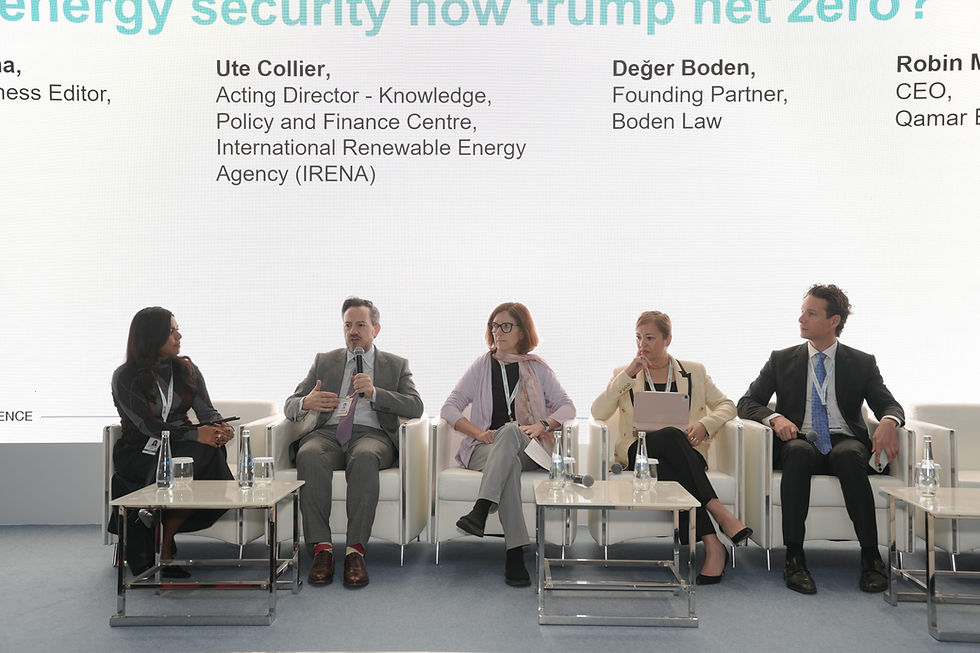Zest presents at KAPSARC: Financing a Green Transition in the Middle East
- Zest Associates

- May 4, 2023
- 2 min read
Jeffrey Beyer presented at a Knowledge Sharing session at King Abdullah Petroleum Studies and Research Centre in Riyadh, Saudi Arabia.

Governments have a critical role to play in shaping the investment conditions necessary to mobilize sustainable finance in the Middle East. The urgency of this role is apparent in the need for additional funding to meet the United Nations' Sustainable Development Goals (SDGs). A funding gap of between $2-4 trillion annually exists globally, with $240 billion of this gap found in the Arab region alone. Private sector finance is expected to provide the majority of the funding needed for these goals, and governments must shape the macroconditions to support investment in sustainable projects.

At a presentation at KAPSARC on May 2, 2023, Jeffrey Beyer, Managing Director of Zest Associates, presented his research on how governments in the six Gulf Cooperation Council countries plus Egypt and Iraq can mobilize private sector finance to close the funding gap. He analyzed 35 case studies from the region to identify specific levers each government should prioritize to maximize the return on their efforts.
Rather than focusing on specific sectors to invest in, Beyer focused on cross-cutting financial mechanisms that governments could use to mobilize private sector finance. He defined six elements of the enabling environment that should be adjusted to better align finance with long-term sustainability objectives.
These include
Awareness-raising,
Turning vision statements into financing strategies
Creating green and sustainable taxonomies
Supporting climate- and nature-related disclosures
Facilitating markets with, for example, a Green Investment Bank or Super-ESCO
Leveraging central banks to encourage sustainable investments.
Additionally, the team reviewed eight financial tools that governments could use to stimulate sustainable investments and reach underserved groups. These tools include:
Inclusive loans and subsidies
Guarantees and risk insurance
International climate finance
Green bonds and green sukuk
Carbon pricing
Debt-for-nature and debt-for-climate swaps
Sovereign wealth funds
State-owned enterprises.

Beyer recommended several innovative approaches for governments to consider, including subsidizing energy efficiency and offering loans and innovative investment products with low carbon or social objectives. He also suggested that programs be created to help financial institutions provide innovative financing options, especially to small businesses and underserved groups that often face punitively high interest rates and collateral requirements for standard loans.
Another approach is to create a low-cost or revenue-neutral energy efficiency subsidy in energy-exporting countries. In countries that export energy, like many countries in the Gulf and wider region, governments lose out when energy is used domestically. By exploring opportunities to create a subsidy for energy efficiency savings, governments can offset some of these losses while also encouraging sustainable investments.
The Middle East faces significant challenges in meeting the SDGs, but governments in the region have an outsized opportunity to affect the investment environment. By shaping the macroconditions within which private sector financial decisions are made and using financial tools to mobilize sustainable finance, governments can help close the funding gap and promote a green transition.



Comments